#Best Lawyers in UAE
Text
Mediation and Conciliation in Civil and Commercial Disputes: A New Horizon
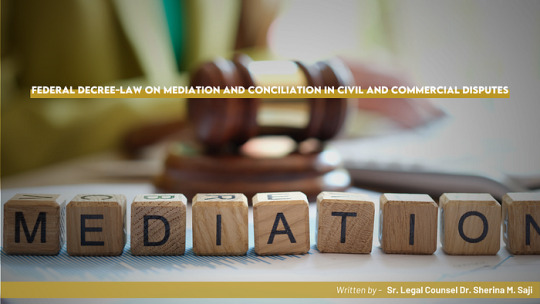
With the launch of the Mediation Rules by the Dubai International Arbitration Centre effective from 01 October 2023, the UAE has introduced a significant piece of legislation at the federal level, consolidating Mediation and Conciliation specifically in Civil and Commercial Disputes viz. Federal Decree Law №40 of 2023 (the “Decree-Law”) which will come into effect on 29 December 2023, thereby repealing Federal Law №6 of 2021 on Mediation in Civil and Commercial Disputes which regulated both the judicial and non-judicial Mediation; and Federal Law №17 of 2016, as amended by Federal Law №5 of 2021, which governs Conciliation and regulates the establishment of court-annexed Conciliation and Mediation centres for civil and commercial disputes; ushering in a new era for alternative dispute resolution (“ADR”) in the UAE.
By nature, the concept of Mediation and Conciliation is profoundly embedded in Arabic culture and Sharia law, as such, the Decree-Law is a welcome step equally for parties and lawyers alike to progress ADR in the UAE. This move aligns with the UAE’s commitment to signing the Singapore Convention on Mediation, announced in March 2022.
Overview
At the outset, Mediation may be conducted in all civil and commercial disputes capable of settlement without conflicting with the existing laws or the public order and morals prevailing in the UAE, without prejudice to the provisions of the local laws that regulate Mediation. This is in accordance with Article 8 of the Decree-Law, while Article 27 of the Decree-Law states about the exclusive competency of Mediation and Conciliation Centre (the “Centre”) to conciliate civil and commercial disputes (i) whose value does not exceed five million (5,000,000) dirhams; and (ii) between spouses or relatives up to the fourth degree, regardless of their value. The adversaries may agree to resort to the Centre for Conciliation of civil and commercial disputes whose value exceeds five million (5,000,000) dirhams, whether before a case is filed or while it is being heard.
That said, as outlined in Article 28 of the Decree-Law, certain disputes do not fall within the jurisdiction of the Centre viz. (i) urgent and interim orders and cases; (ii) cases to which the government is a party, (iii) rental cases heard before special rental dispute committees, (iv) labor cases, personal status cases; and (vi) any other cases decided to be heard before a Centre, committee or other entity of similar jurisdiction.
Establishment of Centres
The Federal Judicial Council (the “Council”) or the chairman of the local judicial authority may establish one or more Centre(s) for Mediation and Conciliation within the territorial jurisdiction of the first-instance courts; and shall issue pertinent regulations to govern the work and operations of the Centre(s). There is also scope for establishing special Centre(s) for Mediation and branches of foreign Mediation Centre(s); with court or the local judicial authority having supervisory authority on its working and formulating the general policies.
Remote Mediation and Conciliation Platform
Article 4 of the Decree-Law empowers the Mediators and Conciliators to conduct Mediation and Conciliation meetings through electronic means and remote communication, subject to regulations and procedures issued by the Minister of Justice, based on the approval of the Council or the chairman of the local judicial authority.
Mediators and Conciliators Accreditation Processes
The Federal Judicial Inspection Department or the local judicial authority shall maintain a roster for registering Mediators from amongst those registered in the experts’ schedule at the Ministry of Justice or with the local judicial authorities, and the expert Mediators named by a decision of the Council or the chairman of the local judicial authority. Normally they shall be selected from amongst retired members of the judiciary, lawyers registered in the schedules of practicing and non-practicing lawyers. Qualification includes practice of the profession for a period of not less than five (5) years prior to their registration in the non-practicing lawyers’ schedule, and other highly qualified experts and international experts in the legal and business fields, who are known for their expertise, integrity and impartiality. Furthermore, Article 15 of the Decree-Law allows appointment of any natural or legal person, known as Private Mediator, entrusted by the Parties with the task of Mediation to amicably resolve the dispute between them, and not registered on the Mediators’ Lists.
The appointment of Conciliators follows a procedure similar to employment. The Federal Judiciary or the president of the local judicial authority will establish the qualification for the post of a Conciliator. The Conciliators must take a legal oath before assuming their duties, and shall be subject to a specific compensation scheme.
Confidentiality and Non-disclosure
The documents and information submitted or agreements or concessions made by the parties to the disputes submitted for Mediation or Conciliation (the “Parties”), and Mediation and Conciliation procedures as a whole are treated with utmost confidentiality, as envisaged in Article 5 of the Decree-Law; except with the consent of the Parties, or as required by law. Exception further extents to document(s) prepared by the Mediator or the Conciliator and signed by the Parties, including the Settlement reached to resolve the dispute, in whole or in part, between them; and the documents and instruments necessary for its enforcement. Failure by the Mediator or Conciliator to adhere to the confidentiality and non-disclosure obligations stipulated herein, attracts disciplinary actions according to Article 40 of the Decree-Law, without prejudice to the provisions of civil and criminal liability.
Prohibitions on the Mediator and Conciliator
Article 6 of the Decree-Law prohibits the Mediator and Conciliator from acting as an arbitrator or expert in the dispute, or accepting to be an attorney in a dispute against any of the Parties regarding the subject matter of the dispute subject to Mediation or Conciliation, or anything arising from it, even after the completion of the Mediation or Conciliation procedures, unless the Parties agree otherwise. Prohibitions further extents to giving testimony against any of the Parties to the dispute regarding the subject matter of the dispute subject to Mediation or Conciliation, or anything arising therefrom, even after the completion of the Mediation or Conciliation procedures, unless authorized by the concerned party or the Parties agree otherwise, except in cases where the testimony is related to a crime; and in case of acting as a Mediator or Conciliator in a dispute where one of the Parties is a spouse or a relative up to the fourth degree by blood or marriage.
Parallel Mediation and Conciliation Structures
While the previous separate federal laws on Mediation and Conciliation laws are now consolidated, these two parallel structures continue to co-exist under the Decree-Law. Concerning Conciliation, under the court-annexed system, mandatory Conciliation is a prerequisite for specific types of disputes prior to litigation proceedings, and with regards to Mediation, voluntary process that can be initiated either through contractual agreement or by court referral, subject to the Parties mutual consent applies. Here, the chief difference is with the role of the “Mediator” opted by the Parties i.e., while in the Mediation process, the Mediator acts as a facilitator aiding the Parties to arrive at an agreement using the Mediation techniques; however, in the Conciliation process, the Mediator only suggests possible paths to the Parties in order to resolve the dispute. Precisely, both the structures share a common goal, which is amicable resolution of the disputes, whether before, or at the stage of the legal proceedings.
Consensual Mediation
In enforcing the agreement between the Parties made either before or after the occurrence of dispute, with the aim of resorting to Mediation for the Settlement of the dispute (“Mediation Agreement”), the Parties may directly resort to the Center to settle the dispute between them, before filing a lawsuit, as per Article 11 of the Decree-Law. This is Consensual Mediation, the initiation of which interrupts legal and judicial deadlines and only resume upon the completion of the Mediation, unless it is concluded by the Parties signing a Settlement Agreement. The procedures for Consensual Mediation are set out in Article 12 of the Decree-Law. In pursuance of Article 13 of the Decree-Law, the court before which a case is filed regarding a dispute brought before a Mediator in enforcing the Medication Agreement, shall decide suspension of the case until the completion of the Mediation procedures, if the defendant urges therefor before making any request or submission on the merits, unless the court finds that the Mediation Agreement is void or impossible to be enforced. The filing the case shall not however, preclude the initiation or continuation of Consensual Mediation procedures.
Court-Referred Mediation
Court-Referred Mediation occurs by virtue of a referral decision made by the subject-matter court competent to hear the lawsuit (“Competent Court”), at any stage of the case, whether proposed by the court with the Parties’ consent or upon their request. Article 14 (3) stipulates that the referral decisions issued by the Competent Court cannot be appealed by any ordinary or extraordinary means of appeal. Mediation shall end as per Article 21 of the Decree-Law if the Parties (i) sign a Settlement Agreement; (ii) agree to end the Mediation before reaching a Settlement Agreement for any reason; (iii) if one of the Parties informs to the Mediator or the Centre of their wish to participate in or continue Mediation; (iv) if the Mediator notifies the Centre, in writing or electronically, that the Mediation: (a) is futile and that there is no possibility of reaching a resolution to the dispute; (b) has been ended due to the absence of any of the Parties from two consecutive Mediation sessions without excuse; and (v) if the Mediation period expires without being renewed.
In all the above cases, the Mediator shall, upon the end of Mediation, deliver to each party any memoranda and documents they presented, and they may not retain them or copies thereof, and shall send a written or electronic report to the Centre on the result of the Mediation within three (3) working days from the date of ending the Mediation for any reason. The Centre shall notify the Parties and the Competent Court, within three (3) days, of the report and the result of the Mediation.
End of Mediation
Mediation if concluded successfully can end by signing the Settlement Agreement. The ratification process of the Settlement Agreement follows three tiers. i.e., from the Mediator to the Centre and finally to the Court. The Mediator shall submit a report to the Centre along with the Settlement Agreement, which the Centre shall send it to the Court within 3 working days. As a final step, the Court shall ratify the Settlement Agreement and issue a decision to end the dispute, wholly or partially, at a session to be scheduled within seven (7) working days from the date of its receipt of the Settlement Agreement. After its ratification, the agreement shall become a writ of execution and an exequatur shall be affixed thereto upon the request of all Parties or one of them, in light of the terms of the agreement submitted to it, and shall be executed according to the procedures stipulated in the Federal Civil Procedure Law.
That said, the aggrieved party has the rights to object or challenge ratification of the Settlement Agreement, by filing an annulment case before the competent Court. The party seeking annulment shall prove one of the reasons viz. (i) lack of legal capacity of one of the Parties to the Settlement Agreement or diminished capacity at the time of its conclusion, (ii) no Settlement Agreement or if the agreement was void or voidable, or if it was made after the expiry of the Mediation period; or (iii) if one of the Parties was unable to present their defence due to invalid service of process or notification of the Mediation procedures or due to them not having been aware thereof for any other reason beyond their control. Pursuant to Article 24 (2) of the Decree-Law, the judgment issued by the court in the annulment case shall be final and can only be appealed through cassation.
Settlement before the Conciliator
If a settlement is reached between the Parties before the Conciliator, either in whole or in part, this shall be recorded in a minutes signed by the Parties and the Conciliator. These minutes shall be ratified by the Supervising Judge, have the force of a writ of execution and the same binding force of court judgments, and are not subject to appeal by any means of appeal. Upon ratification, the minutes shall be affixed with an exequatur upon the request of all or any of the Parties, free of charge, and shall be executed in accordance with the procedures stipulated in the Federal Civil Procedure Law.
Conclusion
The enactment of the Decree-Law marks a pivotal moment for Mediation and Conciliation in the UAE, offering a unified platform for resolving disputes not just in property and construction disputes but in other Civil and Commercial disputes as well.
Recommendation
Whether you are navigating construction disputes, real estate intricacies, or commercial contracts, having a reliable Dubai Lawyer is crucial in providing comprehensive services across various legal domains. Dubai Lawyers and Dubai Law Firms play a pivotal role in addressing a spectrum of legal needs. Considering the legal landscape in Dubai, individuals and businesses can benefit from the expertise of seasoned Dubai Lawyers.
Our record of representing clients in Mediations and ADR procedures throughout the UAE speaks volume. Thus, we recommend for a comprehensive understanding and implementation of the new legislation, consider consulting the seasoned lawyers at Al Dhaheri International Advocates & Legal Consultants, renowned for their expertise in mediation and alternative dispute resolution throughout the UAE.
Written by — Dr. Sherina M. Saji
#Law Firm#Dubai Lawyer#Lawyers in Dubai#Dubai Lawyers#Best Lawyers in Dubai#Best Lawyers in UAE#Best Advocates in Dubai#Best Lawyers in Sharjah#Dubai Law Firms#Dubai Law Firm#RERA Dubai
2 notes
·
View notes
Text
Navigating Legal Waters: Finding the Best Advocates in Dubai
In the vibrant and ever-evolving landscape of Dubai, legal matters can often become complex and daunting. Whether you're facing a personal legal issue, managing a business dispute, or seeking counsel for corporate matters, having a skilled lawyer by your side is essential. In Dubai, where the legal system merges elements of civil law and Islamic law, finding the right advocate can make all the difference in achieving a favorable outcome.
Understanding Legal Needs in Dubai
Dubai, known for its bustling economy and multicultural population, hosts a diverse array of legal challenges. From corporate law and real estate transactions to family disputes and criminal defense, the legal landscape here demands expertise across various domains.
One of the first steps in finding the best advocate in Dubai is understanding your specific legal needs. Are you a business owner navigating commercial contracts? Or perhaps you're an expatriate seeking guidance on immigration law. Identifying the nature and scope of your legal issue will help you narrow down your search for the most suitable legal representation.
Qualities of a Top-tier Dubai Lawyer
When seeking legal assistance in Dubai, certain qualities set the best advocates apart:
Expertise: Look for lawyers with extensive experience and a proven track record in handling cases similar to yours. Whether it's litigation, arbitration, or transactional matters, specialized knowledge is invaluable.
Reputation: Reputation speaks volumes in the legal industry. Seek recommendations from trusted sources, review client testimonials, and assess the lawyer's standing within the legal community.
Communication Skills: Effective communication is crucial for a successful attorney-client relationship. Your lawyer should be able to explain complex legal concepts in plain language and keep you informed at every stage of the process.
Cultural Sensitivity: Given Dubai's diverse population, cultural sensitivity is essential. A skilled advocate understands the cultural nuances that may impact legal proceedings and approaches each case with respect and empathy.
Accessibility: Accessibility is key when dealing with legal matters. Choose a lawyer who is responsive to your inquiries and readily available to address your concerns.
The Role of Advocates in Dubai
In Dubai, lawyers, often referred to as advocates, play a multifaceted role in the legal system:
Legal Representation: Advocates represent clients in various legal proceedings, including court hearings, negotiations, and alternative dispute resolution methods such as mediation and arbitration.
Legal Advice: Beyond representation, advocates provide legal advice and guidance to individuals, businesses, and organizations navigating complex legal issues.
Document Drafting: From contracts and agreements to legal opinions and pleadings, advocates assist clients in drafting and reviewing a wide range of legal documents.
Dispute Resolution: Whether it's resolving business disputes or settling family matters, advocates employ their negotiation skills and legal expertise to facilitate favorable outcomes for their clients.
Finding the Best Advocates in Dubai
So, how do you find the best advocate to handle your legal matters in Dubai?
Research: Start by conducting thorough research online, exploring law firm websites, legal directories, and professional profiles. Pay attention to areas of specialization and relevant experience.
Consultations: Schedule consultations with multiple advocates to discuss your case and assess compatibility. Use this opportunity to ask questions, clarify fees and expectations, and gauge the advocate's approach to your legal issue.
References: Seek recommendations from colleagues, friends, and trusted advisors who have experience dealing with legal matters in Dubai. Personal referrals can provide valuable insights into the quality of legal representation.
Credentials: Verify the credentials and qualifications of potential advocates, ensuring they are licensed to practice law in Dubai and are in good standing with the relevant legal authorities.
Gut Feeling: Ultimately, trust your instincts when selecting an advocate. Choose someone with whom you feel comfortable and confident entrusting your legal affairs.
In conclusion, navigating the legal landscape in Dubai requires the guidance of skilled advocates who understand the intricacies of the local legal system. By prioritizing expertise, reputation, communication, and cultural sensitivity, you can find the best advocate to champion your legal rights and interests in Dubai's dynamic environment.
For more details visit our website: Dubai Lawyer
Contact: +9715854 44775
Mail id: [email protected]
Website: https://aldhaheriinternational.com/
Address: 404, 4th Floor,Business Avenue, P. O. Box No:115263,Sheikh Rashid Road,Dubai,UAE
0 notes
Text
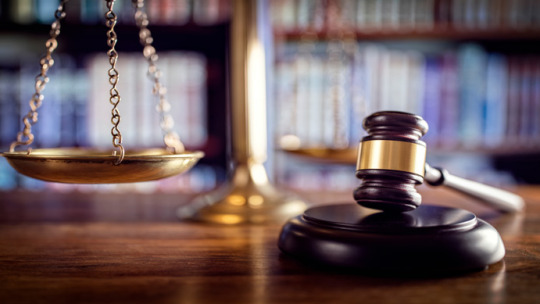
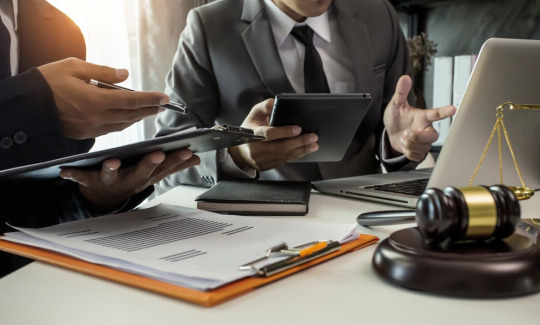
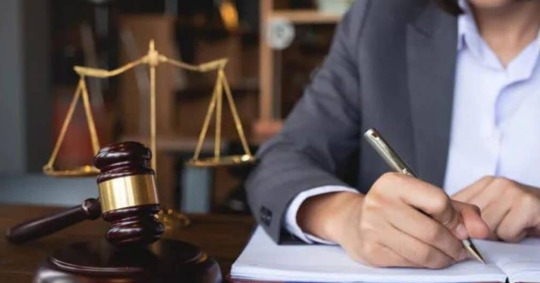


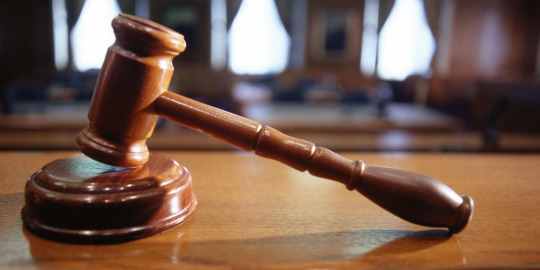
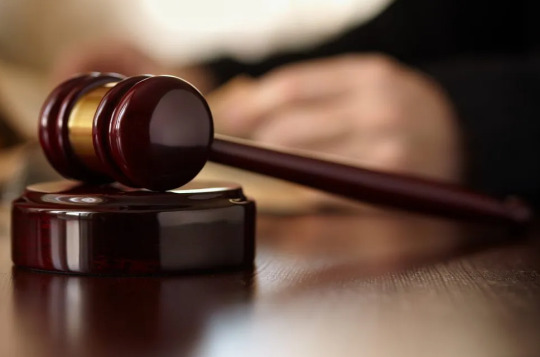
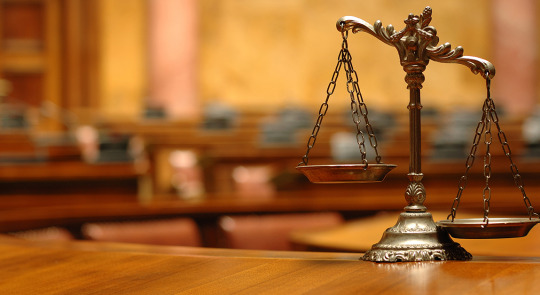

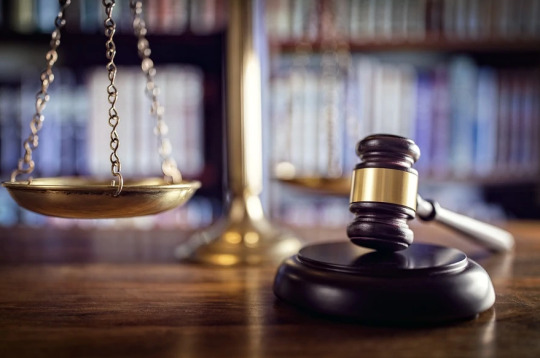
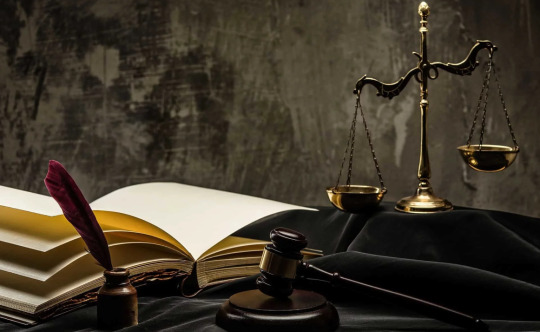

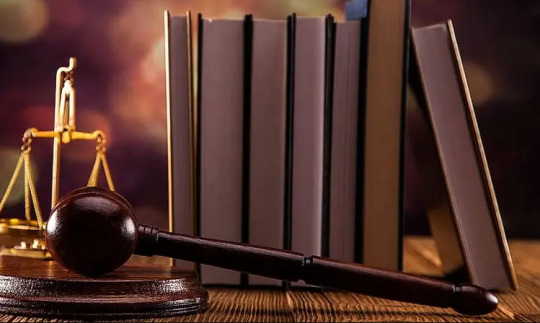
#lawyers in dubai#law firms in Dubai#law company in dubai#legal firms in Dubai#law firm in dubai uae#legal companies in dubai#law firm#legal consultants in dubai#law consultants in dubai#Advocates in dubai#best lawyers in dubai#law firms in uae#legal firm in uae#lawyers in uae#best lawyers in UAE#Advocates in UAE#top uae law firms#International law firms in uae#top law firm in uae#ali shamsi#alshamsi & partners#alshamsi law office#alshamsi lawyers#ali alshamsi lawyers#ali abdulla majed alshamsi
0 notes
Text
Manage the Bail Procedure with an Expert Bail Attorney
Facing legal troubles? Don't let the bail procedure overwhelm you! Our seasoned bail lawyer UAE is here to navigate the complexities and secure your release

At Nevo Legal, our expert bail lawyer in UAE are dedicated to navigating the intricate bail procedure, ensuring your rights are safeguarded every step of the way.
contact more details
Office 501
Creative Tower
Hamad Bin Abdulla Road
Fujairah, UAE
+971 50 2132013
0 notes
Text

R. Di Siena Consulting DMCC: Premier Italian legal expertise in the UAE. Trust the best Italian lawyer for your legal needs. For more information, you can visit our website https://www.rds.ae/index.php/it/ or call us at +971508808781
0 notes
Text
Navigating Legal Waters: A Comprehensive Guide to Finding the Best Legal Representation in Dubai
In the dynamic landscape of Dubai's legal domain, securing adept legal counsel is paramount for individuals and businesses alike. Among the myriad options available, Somi Rejinish Lawyer emerges as a beacon of excellence, offering a spectrum of legal services tailored to diverse needs.
As a leading law firm in Dubai, Somi Rejinish Lawyer prides itself on its commitment to professionalism, expertise, and client-centric approach. With a team of seasoned legal experts, including top legal consultants, legal advisors, and experienced lawyers, the firm stands out for its unwavering dedication to delivering optimal results for its clients.
For those navigating criminal law matters in Dubai, Somi Rejinish Lawyer boasts a cadre of adept criminal lawyers with a deep understanding of local laws and regulations. From defending clients against criminal charges to providing strategic legal counsel, their expertise ensures comprehensive legal representation at every stage.
In the realm of corporate law, Somi Rejinish Lawyer shines as the go-to destination for businesses seeking sound legal advice and representation. Their corporate lawyers possess a wealth of experience in navigating complex corporate transactions, regulatory compliance, and dispute resolution, making them invaluable allies for businesses operating in Dubai's vibrant corporate landscape.
Moreover, Somi Rejinish Lawyer caters to the diverse legal needs of individuals and businesses alike, offering specialized services in areas such as commercial law, real estate law, family law, and international law. Whether it's drafting contracts, resolving disputes, or navigating intricate legal frameworks, their team of professional lawyers ensures meticulous attention to detail and a steadfast commitment to achieving favorable outcomes for their clients.
One of the hallmarks of Somi Rejinish Lawyer is its reputation as a trusted advisor and advocate in the legal arena. Clients rely on the firm not only for its legal expertise but also for its unwavering dedication to upholding their rights and interests with integrity and diligence.
Furthermore, Somi Rejinish Lawyer distinguishes itself as a leader in providing comprehensive legal solutions tailored to the unique needs of its clients. Whether it's navigating complex international legal matters or advocating for clients in high-stakes litigation, the firm's holistic approach ensures that clients receive the personalized attention and strategic guidance they deserve.
Somi Rejinish Lawyer stands out as a premier destination for individuals and businesses seeking top-tier legal representation in Dubai. With a team of highly skilled legal professionals, a commitment to excellence, and a track record of success, the firm continues to set the standard for legal excellence in the region. Whether facing criminal charges, navigating corporate complexities, or seeking resolution in family matters, clients can trust Somi Rejinish Lawyer to provide the expertise and advocacy they need to achieve their legal goals.
#civil lawyers#civil lawyer dubai#civil lawyers uae#best civil lawyers in uae#civil lawyers dubai#best lawyer for civil cases in dubai#civil lawyer in dubai#civil lawyers in dubai#civil lawyers in uae#civil lawyer in uae#civil litigation lawyer dubai#best civil law firms in uae#domestic violence defense dubai#drug lawyer in dubai#Law Firm in Dubai#Best law firm in Dubai#top legal consultant in dubai#legal advisor in Dubai#best legal consultant Dubai#best lawyer in Dubai#legal firms in Dubai#legal advocates in dubai#Criminal lawyers in dubai#corporate lawyers in dubai#commercial lawyer in dubai#Legal Law Firm in Dubai#Professional Lawyers in Dubai#Best Corporate Law Firm in Dubai#Best International law Firm in Dubai#Family Lawyer Dubai
0 notes
Text
#leading law firms in the uae#intellectual property lawyers in dubai#best criminal lawyers in dubai#advocates and legal consultants dubai
0 notes
Text
Why should you utilize the service of real estate lawyers in Dubai
The assistance of top lawyers Dubai, and real estate lawyer in uae the client can easily learn about the laws and regulations. Utilize the service of the best legal consultants in Dubai and avoid legal disputes. The lawyers can also clearly decipher the term and conditions that are mentioned in the contract. The real estate lawyers do everything to protect the interest of the clients.
0 notes
Text
Top lawyers Dubai:-
The litigation lawyers can easily handle misdemeanors, felonies and financial crimes. Whether the matter is present in a police station or criminal court, the litigation lawyers can effectively defend you. Hire the best advocates in Dubai who have a very high success rate. To know more: https://www.aljasmilaw.com/

0 notes
Text
What are the new updates on USCIS: COVID-19 Form I-9 Flexibilities?
Employment Eligibility Verification Form I-9 COVID-19 Temporary Flexibilities will expire on July 31, 2023. Employers must perform in-person physical document inspections for employees whose papers were remotely inspected during the interim flexibilities by August 30, 2023, according to a new announcement from U.S. Immigration and Customs Enforcement (ICE) and the best immigration lawyers in UAE.
Employers now have more time to execute in-person physical inspections of identity and work authorization papers and annotate Form I-9s for this group as a result of this recent notice. These adjustments were first made public in March 2020 and then again in March 2021.
In order to facilitate remote document evaluation for Form I-9, DHS submitted a Notice of Proposed Rulemaking last year. DHS intends to execute this proposal by issuing a Final Rule in the Federal Register.
According to the flexibility notice released on March 20, 2020, DHS will assess specific COVID-19-related Form I-9 completion practises as they pertain to the physical examination of Form I-9 paperwork on a case-by-case basis. Therefore, beginning of April 1, 2021, only those workers who physically report to work at a firm site on any regular, consistent, or predictable basis are subject to the requirement that employers check employees' Form I-9 identity and employment eligibility paperwork in person.
Employees hired on or after April 1, 2021, who exclusively perform their work remotely as a result of COVID-19 precautions, are temporarily exempt from the physical inspection requirements associated with the Employment Eligibility Verification (Form I-9) under Section 274A of the INA until they perform non-remote work on a regular, consistent, or predictable basis, or until the extension of the flexibilities associated with such requirements is terminated, whichever comes first.
Employers are free to begin, at their discretion, the in-person verification of identity and employment eligibility documentation for workers hired on or after March 20, 2020, who submitted those documents for remote inspection in reliance on the flexibilities initially announced in March 2020. The flexibilities discussed here do not preclude employers from doing so.
The Department of Homeland Security (DHS) announced today that it will exercise discretion to postpone the physical presence requirements associated with Employment Eligibility Verification (Form I-9) under Section 274A of the Immigration and Nationality Act (INA) due to precautions being taken by employers and employees related to physical proximity associated with COVID-19. Employers will not be compelled to examine the employee's identification and employment authorization paperwork when the employee is present owing to COVID-19 if the employee is exercising physical proximity safeguards. However, for the purposes of completing Section 2, employers must receive, review, and maintain copies of the Section 2 papers within three business days and must see the documents remotely (e.g., through video link, fax, or email).
The employer and the best immigration lawyers in UAEshould include "documents physically examined" and the date of the inspection in the Section 2 extra information area on the Form I-9 or Section 3 depending on the situation. Employers may put these rules into effect for a period of 60 days starting on the date of this notification OR within 3 business days following the end of the National Emergency, whichever occurs first.
Employers who choose to use this option must give each employee written confirmation of their telework and remote on boarding policies. Employers are the only ones who must carry this load.
All new hires who were verified remotely must report to their employer within three business days following the restoration of regular operations to provide in-person identification and employment eligibility paperwork for Form I-9, Employment Eligibility Verification. The employer should include "documents physically examined" and the date of the inspection in the Section 2 extra information area on the Form I-9 or Section 3 depending on the situation.
0 notes
Text
Legal Mediation Services
We provide Legal Mediation Services with an effective means of resolving disputes cooperatively. Mediation is another alternative dispute resolution. to traditional court litigation.We mediate for the legal rights and obligations relating to the dispute and the parties.The parties can also benefit from the lawyer’s skills in drafting the settlement agreement that is reached between them.
0 notes
Text
Navigating Legal Waters: A Guide to Lawyers in Dubai
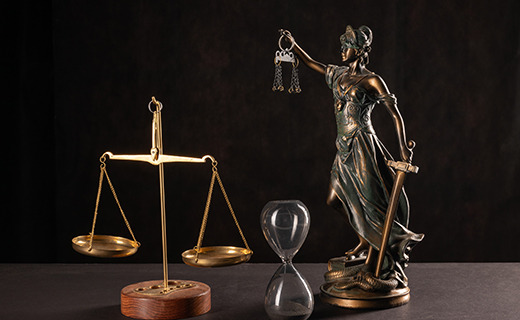
Dubai, with its towering skyscrapers, bustling economy, and vibrant cultural landscape, stands as one of the most dynamic cities in the world. Amidst this fast-paced environment, legal matters often arise, requiring the expertise of skilled professionals to navigate through the intricacies of the legal system. In this blog post, we delve into the role of lawyers in Dubai and the essential services they provide in ensuring justice and legal compliance in the city.
Legal Landscape in Dubai: Dubai’s legal system is a blend of Islamic law, civil law principles, and influences from common law jurisdictions. The legal framework is overseen by the UAE’s federal government, while each emirate, including Dubai, has its own legal system for certain matters. Understanding this complex legal landscape requires the expertise of knowledgeable legal practitioners.
Types of Lawyers in Dubai:
Corporate Lawyers: With Dubai being a global business hub, corporate lawyers play a vital role in advising businesses on various legal matters, including company formation, mergers and acquisitions, contract negotiations, and compliance with local regulations.
Real Estate Lawyers: The real estate sector in Dubai is booming, attracting investors from around the world. Real estate lawyers assist clients in navigating property transactions, lease agreements, construction disputes, and other legal issues related to real estate development.
Family Lawyers: Family law matters such as marriage, divorce, child custody, and inheritance are handled by family lawyers. They provide legal counsel and representation to individuals and families facing sensitive legal issues, ensuring their rights are protected under the law.
Criminal Defense Lawyers: In the event of criminal charges or investigations, individuals require the expertise of criminal defense lawyers to protect their rights and provide a strong defense in court. These lawyers work tirelessly to ensure fair treatment and due process for their clients.
Immigration Lawyers: With a large expatriate population in Dubai, immigration lawyers assist individuals and businesses with visa applications, residency permits, citizenship issues, and immigration appeals, navigating the complexities of immigration laws and procedures.
Qualifications and Licensing: To practice law in Dubai, lawyers must hold a law degree from a recognized institution and be licensed to practice by the relevant authorities. Many lawyers in Dubai have obtained their qualifications from prestigious international universities and have undergone specialized training in UAE law. Additionally, proficiency in Arabic and English languages is often necessary to effectively communicate with clients and navigate the bilingual legal system.
Role of Lawyers in Dubai Society: Lawyers in Dubai serve as advocates for justice, ensuring that individuals and businesses alike receive fair treatment under the law. They play a crucial role in upholding legal rights, resolving disputes, and promoting legal compliance, thus contributing to the overall stability and prosperity of Dubai’s society and economy.
Conclusion: In a city as dynamic and diverse as Dubai, the role of lawyers is indispensable in providing legal services across various practice areas. Whether it’s advising multinational corporations, assisting individuals with personal legal matters, or defending the rights of the accused, lawyers in Dubai play a vital role in upholding the rule of law and ensuring access to justice for all. Their expertise and dedication contribute to Dubai’s reputation as a global center for commerce, innovation, and legal excellence.
1 note
·
View note
Text
Unveiling the Importance of Labour Lawyers in Dubai
Labour laws play a vital role in ensuring fair and just treatment for employees in any given workplace. In Dubai, where the workforce is highly diverse and multinational, it becomes crucial for employees to have access to legal support and guidance when dealing with employment-related issues. This is where labour lawyers in Dubai come into the picture. In this blog, we will delve into the significance of labour lawyers and how they can help employees navigate through complex labour laws in the UAE.
Expertise in UAE Labour Laws:
Labour lawyers in Dubai possess in-depth knowledge and understanding of the UAE's labour laws, regulations, and legal procedures. They are well-versed in the Federal Labour Law, which governs employment relationships in the country. This expertise allows them to provide accurate advice and guidance to employees, ensuring their rights are protected.
Contracts and Negotiations:
Labour lawyers play a crucial role in reviewing employment contracts, ensuring that they comply with the local labour laws and protect the interests of the employee. They can help negotiate fair terms and conditions, ensuring that employees are aware of their rights and obligations before signing any agreement. In case of disputes related to contracts, labour lawyers can represent employees during negotiations to reach a favorable outcome.
Resolving Workplace Disputes:
Workplace disputes can arise in various forms, such as unfair termination, non-payment of wages, discrimination, harassment, or breach of employment contracts. Labour lawyers act as advocates for employees, representing their interests and ensuring that their rights are protected. They can initiate legal proceedings, negotiate settlements, and provide legal representation during mediation or arbitration processes.
Ensuring Compliance:
Labour laws in Dubai impose certain obligations on employers, such as providing a safe working environment, timely payment of wages, and adherence to working hours and leave entitlements. Labour lawyers can help employees ensure that their employers comply with these obligations. In case of any violations, lawyers can take appropriate legal action to hold the employer accountable.
Redundancy and Termination:
When facing redundancy or termination, employees often feel vulnerable and unsure about their rights and entitlements. Labour lawyers can guide employees through the process, ensuring that proper procedures are followed and employees receive fair compensation. They can also evaluate the grounds for termination and advise employees on the appropriate course of action.
Conclusion:
Labour lawyers in Dubai are essential for safeguarding the rights of employees in the dynamic and diverse workforce of the city. They provide legal support, guidance, and representation to employees, ensuring their interests are protected in accordance with the UAE's labour laws. Whether it is reviewing contracts, resolving disputes, or navigating through complex legal procedures, labour lawyers play a crucial role in promoting fairness and justice in the workplace. If you find yourself facing any employment-related issues, it is advisable to seek the assistance of a knowledgeable and experienced labour lawyer to ensure your rights are upheld.
#https://adglegal.com/law-firm-practices/employment-law/#https://adglegal.com/#labour lawyers dubai#labour lawyers in uae#best law firms in dubai#adglegal#law firm in uae
0 notes
Text
https://www.lawuae.com
#lawyers in dubai#law firms in Dubai#law company in dubai#legal firms in Dubai#law firm in dubai uae#legal companies in dubai#law firm#legal consultants in dubai#law consultants in dubai#Advocates in dubai#best lawyers in dubai#law firms in uae#legal firm in uae#lawyers in uae#best lawyers in UAE#Advocates in UAE#top uae law firms#International law firms in uae#top law firm in uae#ali shamsi#alshamsi & partners#alshamsi law office#alshamsi lawyers#ali alshamsi lawyers#ali abdulla majed alshamsi
0 notes
Text
0 notes
Text
The Ultimate Guide to Setting Up a Low-Cost Business in Dubai Business Centers
Introduction:
Starting a business in Dubai doesn't have to be a costly endeavor. With the right strategies and knowledge, you can set up a low-cost business in Dubai business centers and take advantage of the city's thriving economy. This comprehensive guide will walk you through the essential steps and provide valuable tips to help you establish your business while keeping expenses at a minimum.
Conducting Market Research:
Understand the local market demand and identify business opportunities that align with your budget. Analyze competition, target audience, and market trends to ensure the viability of your business idea.
Choosing the Right Business Structure:
Explore the various business structures available in Dubai, such as mainland, free zone, and offshore. Understand their pros and cons, legal requirements, and cost implications to select the most suitable option for your low-cost setup.
Selecting an Affordable Business Center:
Dubai offers a wide range of business centers with flexible office spaces at competitive rates. Research and compare different centers based on location, facilities, pricing, and additional services to find the one that fits your budget and business needs.
Streamlining Licensing and Permits:
Familiarize yourself with the licensing and permit requirements for your specific business activity. Work with business setup consultants or PRO services to navigate the process efficiently and minimize costs associated with licensing fees and documentation.
Cost-Effective Marketing Strategies:
Develop a marketing plan that leverages low-cost or free marketing channels, such as social media, content marketing, search engine optimization (SEO), and networking events. Focus on targeted campaigns to reach your ideal customers without overspending.
Managing Operational Costs:
Optimize your operational expenses by implementing cost-saving measures. Negotiate contracts with suppliers, explore shared services or co-working spaces, and prioritize essential expenditures to control your budget effectively.
Leveraging Digital Tools and Technology:
Take advantage of technology to streamline your business processes and reduce overhead costs. Utilize productivity tools, cloud-based software, and automation solutions to enhance efficiency and minimize manual labor.
Seeking Financial Support and Incentives:
Research government initiatives, grants, and financing options available to entrepreneurs in Dubai. Explore opportunities for financial support or incentives that can further reduce your business setup and operating costs.
Building Strategic Partnerships:
Collaborate with other businesses or professionals in Dubai to share resources, cross-promote, and pool together expertise. Strategic partnerships can help lower costs, expand your reach, and create mutually beneficial opportunities.
Staying Compliant and Adapting:
Ensure ongoing compliance with Dubai's regulations and stay updated with any changes that may impact your business. Adapt your strategies, explore new opportunities, and continuously optimize your operations to thrive in the dynamic business environment of Dubai.
Conclusion:
Setting up a low-cost business in Dubai business centers is an achievable goal with the right approach and resources. By following this ultimate guide, you'll be well-equipped to navigate the process, minimize costs, and lay a solid foundation for the success of your business. With Dubai's vibrant economy and supportive business environment, your low-cost setup can pave the way for future growth and profitability.
#business#business services#business setup#business setup company in dubai#business setup consultants in dubai#business setup in uae#business setup services in dubai#businessinuae#businesssetup#businesssetupdubai#best property management howick#best property lawyer
0 notes